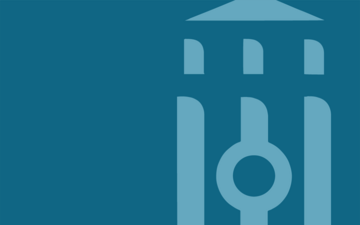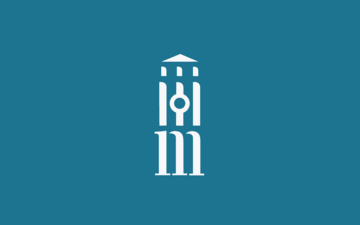UMP EBC Temporary Free-to-Read Initiative = Increased Global Engagement

Between March 20 and August 31, 2020, the University of Michigan Press made its self-hosted ebook collection, UMP EBC, free-to-read. This was in response to the sudden restriction of physical movement and building access due to COVID-19 pandemic "lockdowns" across the world. Because it came without much warning, this move left many faculty, students, and librarians struggling to maintain continuity of research and learning. The removal of access barriers was decided upon with support from the Press's faculty Executive Committee around two days after the U-M Press staff itself moved to 100% remote working. The Press's staff continues to work remotely to this day and will continue to do so until at least July 2021.
The fact that many libraries are still not able to provide access to their physical collections and that many campuses have adopted primarily online instruction illustrates a central tension of the UMP EBC free-to-read promotion. As a business that relies on library sales for a large portion of its revenue, U-M Press could not afford to maintain free access indefinitely without alternate funding options. However, from a user point of view, the need has not gone away and indeed is increasing as COVID-19 moves across the globe. Libraries have, at least, had time to create contingency plans such as the HathiTrust Emergency Temporary Access Service but they are now encountering severe financial constraints as an outcome of a higher education funding crisis that also affects university presses. This is a difficult balance to strike for a university press that is committed to extending access, but which also relies on sales for at least 70% of its revenue.
What is true is that the University of Michigan Press has learned a lot from the experience of making its scholarly books free-to-read for an extended period of time, and the many other scholarly publishers who undertook similar initiatives are also studying what they learned. The bottom line is that if a press is able to make its books freely available in ebook form, untapped global demand for the sorts of scholarship university presses publish emerges that is entirely at odds with the popular perception that monographs "are books that do not get read." We've learned this not only from statistics (that could be clouded by the activities of digital bots and spiders), but also from the feedback collected from real individual users whose gratitude for access is not only moving but inspiring -- to us as a publisher and to the authors who have written their books to be read.
In this context, it seems useful to share some initial data points regarding the UMP EBC free-to-read promotion. (Note that "free-to-read" means that all titles were available on UMP EBC for anyone to read without charge, but only users within the IP ranges of library purchasers of the collection were able to download books.) We will continue to analyze our results and use them to advocate for models that expand access to UMP books.
IP Registry Analysis
With the generous help of the IP Registry (the global IP address database for libraries and publishers), we analyzed weblogs from UMP EBC for the first period of free-to-read availability, March 20 to the end of June 2020, to try and understand the pattern of "logged" and "anonymous" use. Logged use is traffic that can be recognized as coming from a static IP address and thus connected to an institution or an organization. Anonymous use is traffic that cannot be associated with a static IP address, although the protocols managed by IANA can allow the association of this traffic with, for example, a particular country.
- The IP registry weblog analysis reveals 85% of the use of UMP EBC came from outside institutional IP ranges. Of these "anonymous" (or fairly -- thanks to IANA -- anonymous) uses, 43% came from the USA and 57% from other countries. The top ten countries were the USA, France, Singapore, Germany, UK, Finland, Canada, Russian Federation, Turkey, India.
- Of the uses recognized as institutional, users from 739 institutions/organizations used UMP EBC. The institutions came from 65 countries, although 80% of use came from the USA. Outside the USA, the top 10 countries or territories that users came from (in order of volume) were the UK, Germany, Canada, Italy, Portugal, Lithuania, Taiwan, Indonesia, Belgium, and Hong Kong.
- The top 20 institutions by usage were: University of Michigan; University of Oxford; University of California Los Angeles; The Ohio State University; University of Washington; Northwestern University; Free University of Berlin; Columbia University; University of Chicago; University of St Andrews; University of Manchester; the University of North Carolina at Chapel Hill; University of Pennsylvania; Stanford University; New York University; University of Sao Paulo; Indiana University at Bloomington; University of Mississippi; Royal Holloway, University of London; and the University of Oregon.
Google Analytics
The proprietary Google Data Studio reporting implemented on the UMP EBC home page (see "Visualize Impact and Engagement") provides a similar, but less detailed, message to the IP Registry analysis. The attractive Google impact map which we implemented on the site provided a daily snapshot of the spread of use.
- Between March 20 and August 31, there were 134, 219 unique pageviews from 38,833 users. 43% were, again, from the USA. The top ten regions outside the USA were the UK, Turkey, Canada, India, Germany, Italy, Russa, Australia, Hong Kong, and Brazil.
- This report also shows the top ten titles used during the period: The Truth Machines; i used to love to dream; Music on the Move; Academic Ableism; Lee Konitz: Conversations on the Improviser's Art; Adoption, Memory, and Cold War Greece; Scriptures, Shrine, Scapegoats, and World Politics; A Mid Republican House from Gabii; Rediscovering Korean Cinema; and China's Challenges and International Order Transition: Beyond "Thucydides' Trap".
- The sources of sessions are interesting. Direct traffic to the UMP EBC site accounted for 53% of the traffic, referrals from other sites [such as the CrossRef DOI service] 36% of the traffic, and social media 8% of the traffic with Twitter beating Facebook, and LinkIn far behind. Libraries that included free-to-read titles in their library guides also accounted for traffic including Lasalle University, Oxford University, St. Andrews, Harvard, Central European University, Yale, MIT, and the Free University of Berlin. It's clear that including books in library catalogs and special lib-guides drives traffic.
Qualitative Feedback
During the period of the free-to-read initiative, we conducted several surveys with key stakeholders to get a sense of their reactions to the promotion.
- Respondents to our survey of authors were overwhelmingly positive with 97% supportive. Quotes from their responses fill out a picture of a group of scholars grateful for access especially on behalf of their students.
- While we only implemented pop-up surveys of readers relatively late in the process, a large number of responses continue to come in. What is striking from these is the geographic spread of use and the degree of interest outside the academy. Some of the responses were very moving:
- “Yes, I vastly prefer print books, but a lot of academic presses have prices so high that even specialized university libraries are not buying books these days. Being an independent scholar, eBooks at universities are not accessible to me. eBooks just make the scholarly caste system worse in this country.”
- “During the pandemic access to campus and to libraries has been denied. All research and all assigned readings now consist only of materials available online. You should send out regular email announcements to scholarly lists and librarians to advise them of your free digital materials. It would be GREAT if university library systems could link directly to your pdf versions.”
- “Please make more materials open-access. It would help world scholarship a lot. I am from the Philippines and much of our research would be better informed if we had access to more materials. Thanks.”
- “I think the initiative to make usually incredibly pricy books easily and freely accessible is great (I was very excited when I found this website) and I will ask if my previous lecturers (I’ve already graduated) know about the website, - if not, I will share the link with them and I think they might share it with currents students.”


